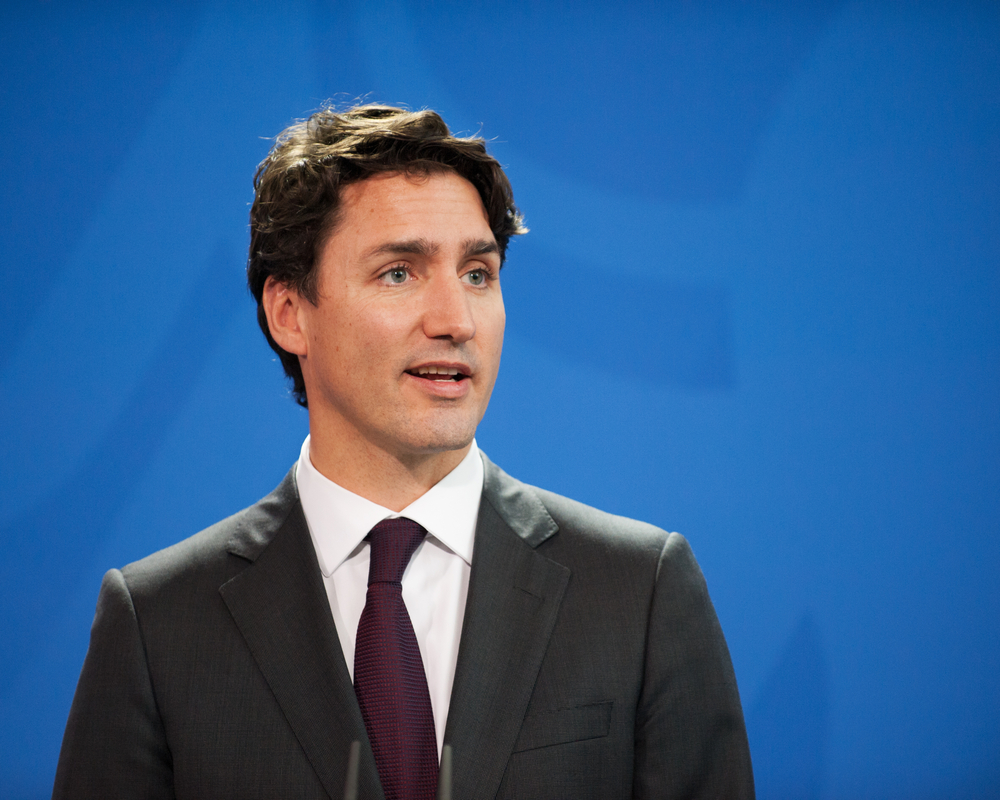
MONTREAL — The Canadian government won’t be rushed into introducing back-to-work legislation like the Conservatives did to favour employers, Prime Minister Justin Trudeau said Tuesday, hours before the possible start of another Canadian railway strike.
“Quite frankly, we have companies that have gotten used to the fact that in certain industries, the government in the past was very quick to legislate against unions,” he said during a conference in Toronto.
“We are not going to do that.”
Trudeau said the government believes in collective bargaining but will use various levers to motivate both sides to reach a settlement.
However, if it is eventually forced to intervene, the Liberal government won’t be giving the advantage to employers, he said.
“I can tell you we will also look at legislation to deal with some of the issues that the unions are talking about, which are not just about money but are about rail safety for employees.”
Canadian Pacific Railway workers are set to strike as of 10 p.m. EDT Tuesday night, potentially forcing the railroad to shut down its freight service and leaving commuters with the prospect of delays in the country’s three largest cities.
The unions representing about 3,000 train operators and 360 signalling workers — the Teamsters Canada Rail Conference and the International Brotherhood of Electrical Workers — gave the railway notice over the weekend that they plan to strike.
“We are still negotiating and still hopeful we will achieve a deal, however, we are not there yet,” IBEW senior general chairman Steve Martin wrote in a text Tuesday.
The Calgary-based railway said it would keep meeting with union representatives, but the unions have accused the company of “refusing to negotiate seriously.”
“Negotiations are ongoing and we are still waiting for CP to show up with a serious offer,” Teamsters rail conference spokesman Christopher Monette wrote in an email.
He said a strike will begin unless a negotiated settlement is reached.
“We are willing to remain at the bargaining table up until the strike deadline and beyond.”
Shippers say they expect talks will fail, resulting in the third CP Rail strike since 2012.
The strike threat comes at a particularly bad time for grain farmers, whose livelihoods were threatened because grain shipping was severely disrupted over the past winter due to extreme cold.
“You always hope for a miracle but we’re pretty sure there’s going to be a stoppage,” said Wade Sobkowich, executive director of the Western Grain Elevator Association, which represents the country’s largest exporters.
He said there’s little that can be done to prepare other than to notify farmers that deliveries will have to be rescheduled and tell overseas customers they could receive late shipments.
“We’re just coming off of a year where we had poor rail service even though we didn’t have a work stoppage and we are trying to maintain relationships with our customers,” he added.
The federal government passed the wide-ranging Transportation Modernization Act last week that includes financial penalties for railways that fail to deliver promised rail cars for grain shipments on time.
The Grain Growers of Canada has asked the federal government to intervene with legislation to keep grain moving.
Even if a strike doesn’t start, the week’s shipping volumes will be reduced because the railway will have gone into shutdown mode that will bring service to a halt, said Todd Lewis, president of the Agricultural Producers Association of Saskatchewan.
A slowdown of rail service during the winter has meant farmers will have the biggest carryover of grain to move in history so they need bins to empty to have room for the crop that was just seeded, he said.
“There’s nothing we can do. We’re just at the whim of the unions and the railroad and all we can do is hope.”
While there’s no good time to endure a strike, it’s a relatively quiet period as farmers are planting the next crop, said Jason Childs, associate professor of economics at the University of Regina.
He doesn’t believe the strike will go on more than a couple of weeks before the government intervenes, especially if commuter rail service is disrupted in Toronto, Montreal and Vancouver.
Via has already cancelled passenger rail service starting Tuesday morning in Ontario between Sudbury and White River.
CP Rail has said it will use qualified management staff to handle signalling and switching tasks so trains can continue to operate.
Teamsters workers employed by Bombardier Inc. to operate GO transit service will continue to operate the trains since they aren’t part of the strike.
Still, the Ontario transportation agency that runs the suburban service said thousands of commuters could face delays starting Wednesday morning on three of its lines to downtown Toronto that run on CP Rail tracks if the railway is unable to maintain signalling service and switching capabilities.
If switches go down on the Milton line, for example, service could be delayed if it takes longer to make repairs, said Metrolinx spokeswoman Anne Marie Aikins.
“We are warning our customers that the potential for delays through those areas.”
She said buses can be deployed on a section of the Hamilton line but delayed rush-hour commutes could affect about 40,000 passengers if the Milton line and the one that runs north to Barrie are down at the same time.
Vancouver’s TransLink has a plan to use buses to the SkyTrain if CP management can’t keep up with problems.
The strike could also cause delays on three commuter trains in Montreal in the event that signalling problems or crossing level malfunctions, said a spokeswoman for the regional transportation authority.